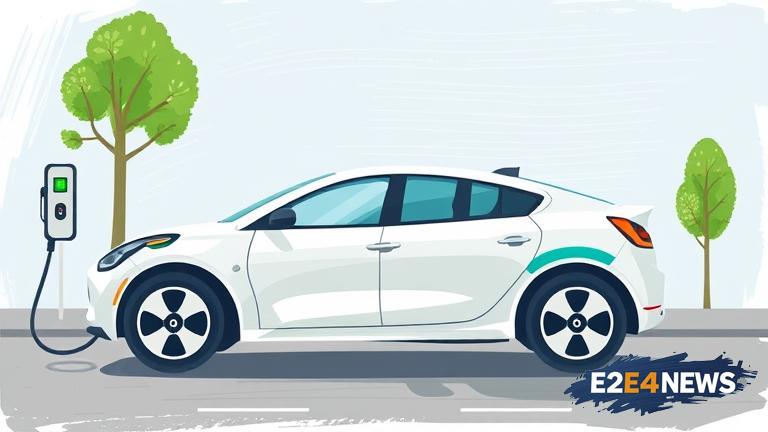The world is shifting towards a more sustainable and environmentally friendly future, and one of the key factors driving this change is the increasing adoption of electric vehicles (EVs). A recent analysis has shown that implementing an EV sales mandate can have a significant positive impact on public health. The study found that by reducing air pollution and greenhouse gas emissions, EVs can help to decrease the number of premature deaths and respiratory problems associated with poor air quality. In fact, the analysis revealed that an EV sales mandate can lead to a reduction of up to 70% in nitrogen oxide emissions and 60% in particulate matter emissions. These reductions can have a significant impact on public health, particularly in urban areas where air pollution is often at its worst. The study also found that EVs can help to reduce greenhouse gas emissions, which contribute to climate change. By transitioning to EVs, governments can help to mitigate the effects of climate change and create a healthier environment for their citizens. The analysis also highlighted the economic benefits of implementing an EV sales mandate. By reducing air pollution and greenhouse gas emissions, governments can help to reduce healthcare costs and improve productivity. In addition, the study found that EVs can create new job opportunities in the manufacturing and maintenance sectors. The implementation of an EV sales mandate can also help to drive innovation and investment in the EV industry. Many countries have already implemented or announced plans to implement EV sales mandates, including Norway, the Netherlands, and China. These countries are leading the way in the transition to a more sustainable and environmentally friendly transportation system. The analysis also noted that there are still challenges to be addressed, including the need for greater investment in EV charging infrastructure and the development of more affordable EV models. However, the study concluded that the benefits of implementing an EV sales mandate far outweigh the costs. In fact, the analysis found that the implementation of an EV sales mandate can lead to significant economic and health benefits, including the creation of new job opportunities, the reduction of healthcare costs, and the improvement of air quality. The study also highlighted the importance of government policies and regulations in driving the adoption of EVs. By implementing an EV sales mandate, governments can help to create a level playing field for EV manufacturers and encourage the development of more affordable and sustainable EV models. The analysis also noted that the implementation of an EV sales mandate can help to reduce the environmental impact of transportation, which is one of the largest contributors to greenhouse gas emissions. In conclusion, the implementation of an EV sales mandate is a crucial step towards creating a more sustainable and environmentally friendly transportation system. The analysis has shown that EVs can have a significant positive impact on public health, the economy, and the environment. As the world continues to transition towards a more sustainable future, the implementation of an EV sales mandate is an important policy tool that can help to drive the adoption of EVs and reduce the environmental impact of transportation. The study’s findings have significant implications for policymakers and industry leaders, highlighting the need for greater investment in EV charging infrastructure and the development of more affordable EV models. Overall, the analysis provides strong evidence for the implementation of an EV sales mandate as a key policy tool for reducing air pollution and greenhouse gas emissions and improving public health.





